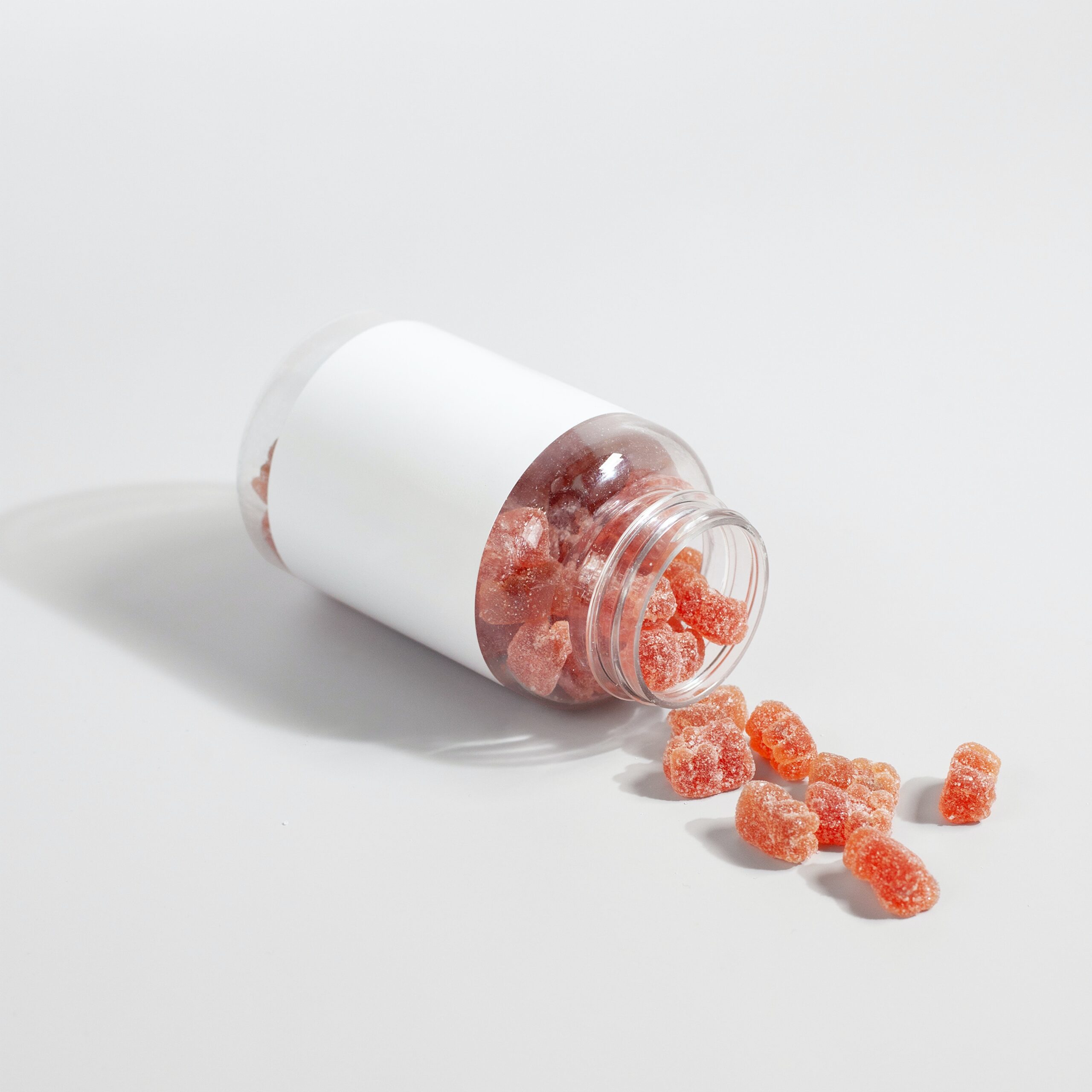Gummies: they’re soft chewable morsels impregnated with small amounts of therapeutic ingredients. They’re everywhere; they look fun; some even taste delicious. But what they are essentially, is candy disguised as natural health product.
When it comes to your health, here’s why you should consider giving gummies a pass:
Sugar and more sugar: A lot of sugar is used in gummies to make the medicinal ingredients within palatable. Not only will this make you hungrier due to the insulin-spiking effect of concentrated sugar—it will also rot your teeth. Be aware that instead of the word ‘sugar’ on gummy ingredient lists you will probably see specific types, like corn syrup, sucrose, beet sugar, glucose syrup, maltodextrin, and more. Gummies are especially not suitable for diabetics due to their sugar content.
Gas-forming fibres and constipating gums. Does that sound good to you? While some companies add fibre to counteract the constipating effect of gum drop-style candy, know that fibre can reduce the absorption of nutrients and drugs consumed simultaneously. (That’s why products like Metamucil Original Powder direct users to take their product at least 2 hours before or after taking medications.)
Insignificant amounts of therapeutic ingredients. Think about this: if it takes sugar, gums and waxes to create a gummy, how much room is left over for vitamins? The answer is, not much—at least, not the amount that will typically have any effect on your health. Even if the manufacturer could squeeze in a larger amount of vitamin B complex, for example, they won’t—because frankly, vitamins don’t taste very good. Hence, we return to the reason for all that sugar.
NOT just one a day: Take a look at the recommended dose. If you’re an adult, you’ll probably need 2 to 4 gummies daily to get any therapeutic value out of the product. Add up the sugar, then add up the cost– and you’ll see it makes more sense to take a capsule.
The Kid Conundrum
You might be thinking, “…but my kids can’t swallow pills yet, and they hate the tablet-style chewables I bought for them. Do we just skip the multivitamin altogether?” Not necessarily. Because kids need smaller amounts of vitamins and minerals than adolescents and adults do, it may be worth giving them a gummy that’s sweetened with xylitol–not sugar—if you can find one. Xylitol is neither a sugar nor an artificial chemical sweetener. It’s classified as a sugar alcohol—yet it’s neither a sugar nor an alcohol. It exists naturally in some fruits and vegetables, but is manufactured using birch tree bark or corn. Since xylitol is not a true carbohydrate, it’s safe for teeth and blood sugar. So if you can find a gummy multi that contains xylitol instead of sugar, it just may be the lesser of the evils.
If you’re an adult using gummies, wait: it’s not candy for grown-ups. Given the four disadvantages I listed above, consider that if you have difficulty swallowing, capsules can be opened and their contents poured into soft food and mixed before eating.
Do yourself a favour and visit your local health food store for a wide selection of quality natural health products, many which contain no sugar. Or, shop my online dispensary for quality supplements.
